8 Easy Social Skills Activities to Boost Your Child’s Confidence
Ever watched your child freeze up when someone asks their name? Or maybe they hide behind your legs when meeting new people? Trust me, you’re not alone in this parenting puzzle.
Social skills don’t always come naturally, yet they’re arguably more important for your child’s future success than their math grades. The good news? Just like any other skill, social confidence can be practiced and improved through fun social skills activities that won’t feel like work to your kids.
In this guide, I’ll walk you through eight simple activities that transform shy, hesitant children into social butterflies—no expensive therapy or complicated techniques required. These are the exact strategies I’ve seen work with thousands of families.
But here’s the interesting part: the most effective activity might surprise you (hint: it’s not the one most parenting experts recommend).
Understanding the Importance of Social Skills for Children
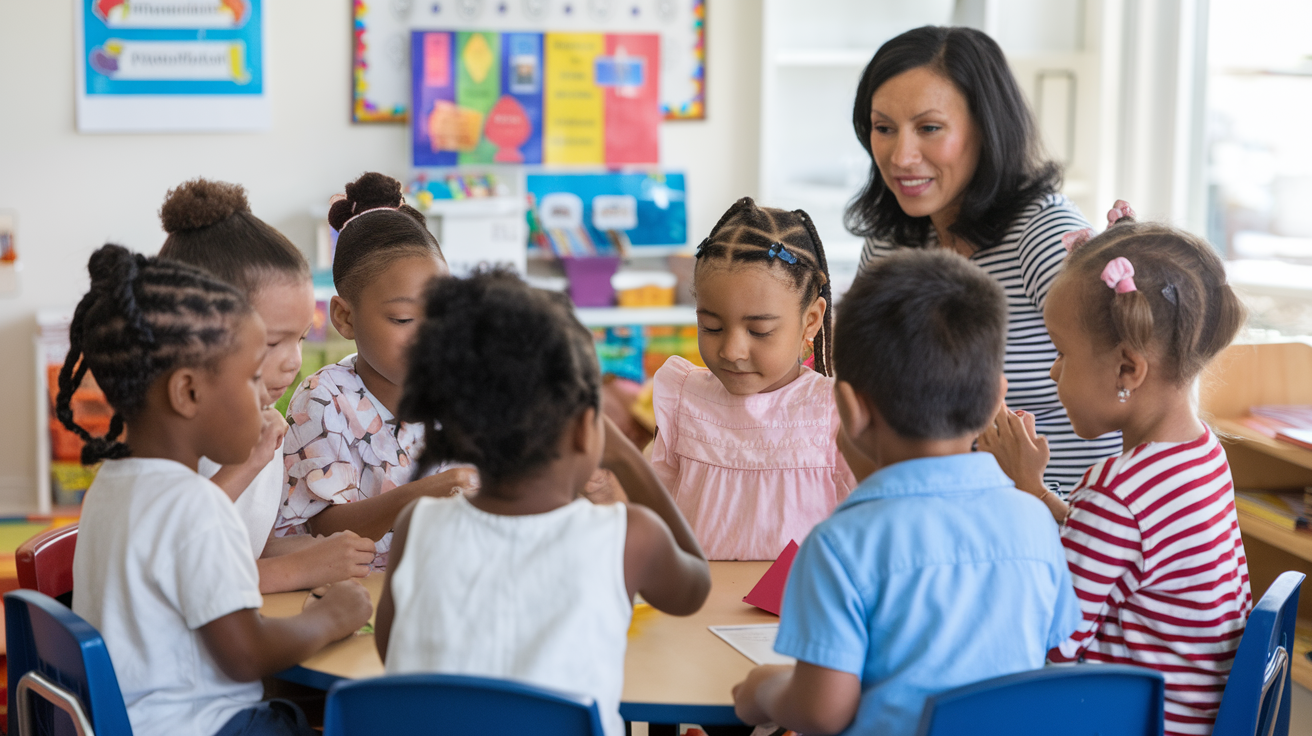
How Social Skills Impact Confidence Development
Kids with strong social skills walk into a room feeling like they belong there. They make friends easier, navigate tough situations, and feel good about themselves while doing it.
When your child knows how to share toys, take turns, and express their feelings without meltdowns, they’re not just being “well-behaved” – they’re building their confidence muscle. Each positive interaction becomes proof that they’re capable and worthy of friendship.
Think about how you feel after a great conversation with a friend. That same feeling of connection and competence is what socially skilled children experience regularly. And boy, does it show in how they carry themselves.
The connection works both ways too. As confidence grows, kids are more willing to try new social situations, creating a positive cycle that keeps building on itself.
Signs Your Child May Need Social Skills Support
Wondering if your child could use a little extra help? Here are some tell-tale signs:
- They hang back at playdates, watching rather than joining in
- Making and keeping friends seems unusually difficult
- They struggle to understand how their actions affect others
- Sharing and taking turns causes major distress
- They frequently misread social cues or body language
- Conversations feel one-sided or awkward
Most kids have tough social moments occasionally. But if these issues pop up consistently and cause your child genuine distress, they might benefit from some targeted social skill building.
Benefits of Early Intervention with Fun Activities
Jumping on social skills development early pays off big time. When you tackle these challenges through play and fun activities, you’re setting your child up for:
- Healthier relationships throughout life
- Better academic performance (yes, social skills and school success are linked!)
- Improved emotional regulation and fewer meltdowns
- Higher self-esteem that carries into adolescence
- More resilience when facing social challenges
- Stronger problem-solving abilities
The best part? Kids have no idea they’re “working” on anything. Through games, roleplay, and guided practice, they’re simply having fun while developing crucial life skills.
The earlier you start, the more natural these skills become. Young brains are incredibly adaptable – what might take conscious effort for an older child or teen often becomes second nature for younger kids given the right support.
Role-Playing Games to Build Communication Skills
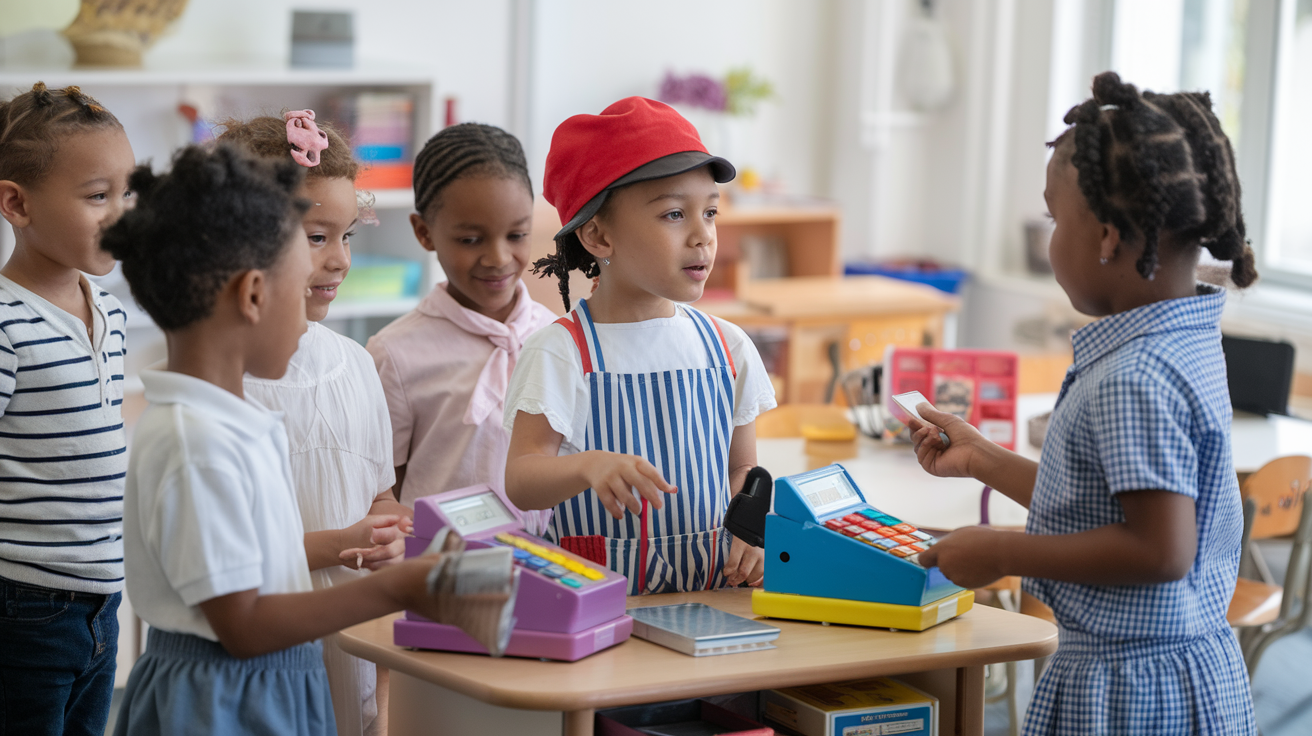
Role-playing isn’t just kid stuff. It’s actually one of the most powerful ways to help your child develop crucial communication skills they’ll use their entire lives. Through pretend play, kids practice real-world interactions in a safe, pressure-free environment.
Family Dinner Conversation Starters
Dinner time is prime time for meaningful chats. Keep a jar of conversation prompts in the middle of your table and take turns picking one each night:
- “What made you laugh today?”
- “If you could have any superpower, what would it be and how would you use it?”
- “What’s something nice someone did for you this week?”
The beauty of this activity? It teaches kids to speak up in group settings, listen without interrupting, and share their thoughts clearly—all while munching on mac and cheese.
“What Would You Do?” Scenario Cards
Create simple cards with everyday social dilemmas like:
- “You see a classmate sitting alone at lunch”
- “Someone cuts in front of you in line”
- “Your friend is being teased on the playground”
Take turns drawing cards and discussing possible responses. This helps kids think through social situations before they happen in real life, giving them ready-made solutions when they need them most.
Emotion Charades for Emotional Intelligence
Write different emotions on slips of paper (frustrated, excited, disappointed, proud) and take turns acting them out without words. The twist? After guessing, ask your child:
“When was the last time you felt that way?”
“How does your body feel when you’re [emotion]?”
This game builds emotional vocabulary and helps kids recognize feelings in themselves and others—the foundation of empathy.
Pretend Play with Different Social Situations
Set up mini-scenarios like “restaurant,” “doctor’s office,” or “new student at school.” Take turns playing different roles.
When my daughter was struggling with shyness, we practiced ordering food from “Daddy’s Diner” for weeks. That small bit of practice gave her the confidence to speak up when we actually went out to eat. Start small, and gradually introduce more complex scenarios as your child’s comfort grows.
Active Listening Exercises That Strengthen Connections
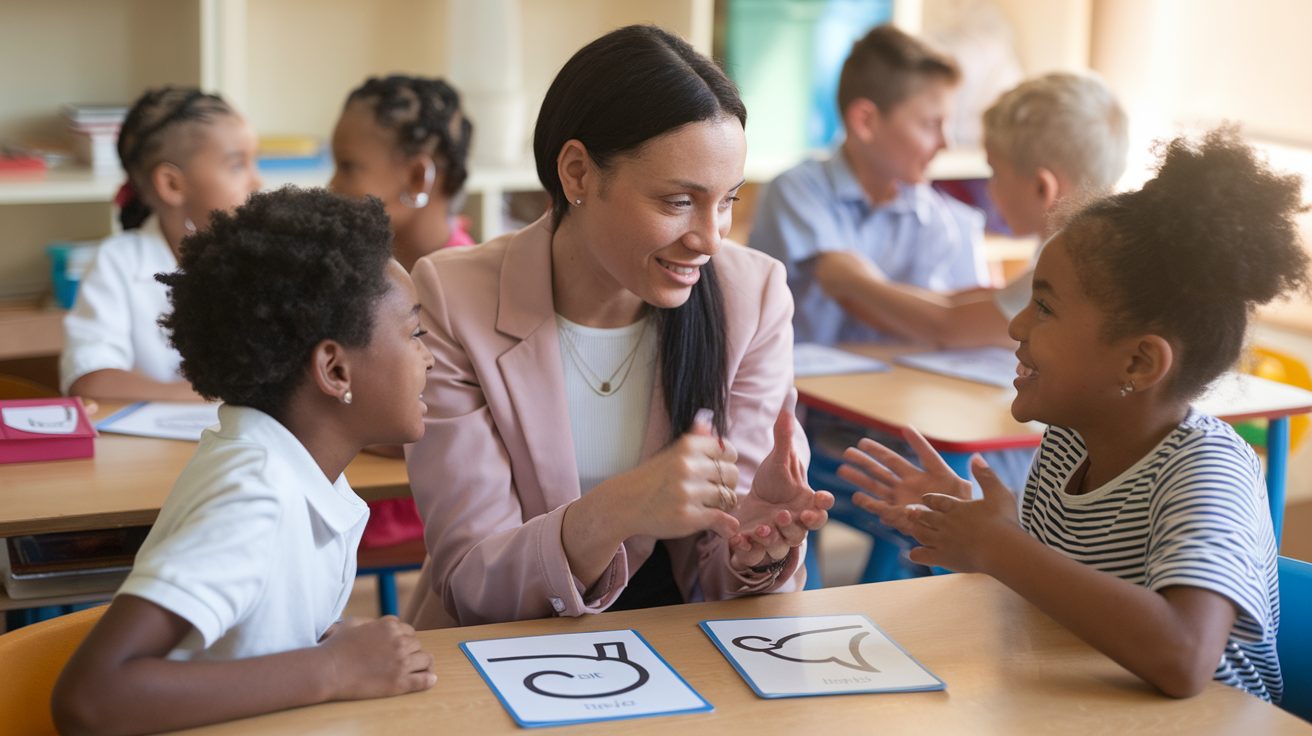
In a world where screens dominate social interactions, teaching kids to actually listen is practically a superpower. Active listening isn’t just about hearing words—it’s about truly connecting with others. When children master this skill, their friendships deepen, conflicts decrease, and confidence soars.
The “Mirror Me” Technique for Better Listening
Ever notice how kids nod along but can’t repeat what you just said? The Mirror Me technique fixes that problem fast.
Here’s how it works:
- Pair up children and designate one as the speaker, one as the listener
- The speaker shares something for 30-60 seconds (like their favorite vacation or what they did yesterday)
- The listener must then “mirror back” what they heard, starting with “What I heard you say was…”
- Switch roles and repeat
What makes this game magical is how quickly kids realize they weren’t really listening before. That moment when they can’t remember details is a powerful wake-up call! Start with simple topics and gradually increase complexity as their skills improve.
Story Circle with Follow-up Questions
This activity turns passive listening into an engaging group experience.
Have everyone sit in a circle. One child begins a story with a few sentences, then stops. The next person must ask a relevant question about what was just said before adding their own contribution to the story. For example:
Child 1: “Once there was a purple elephant who loved ice cream.”
Child 2: “What flavor did the elephant like best?” (question) “The elephant’s favorite was strawberry, and he worked at a zoo.” (addition)
This requires kids to process what they hear, formulate thoughtful questions, and build on others’ ideas—all crucial social skills.
The Whispering Game for Attention Building
Think “telephone” but with a twist. Instead of just passing a message, children must whisper detailed instructions that the last person performs.
For example, start with: “Stand up, touch your nose, spin around twice, and sit back down.” Each child whispers to the next, and the final person attempts the actions.
What’s brilliant about this game is how it teaches children to focus intensely on verbal information. They quickly learn that missing even small details changes everything!
Try these games at your next playdate or family gathering. Kids won’t even realize they’re building essential communication skills—they’ll just think they’re having fun!
Confidence-Building Group Activities
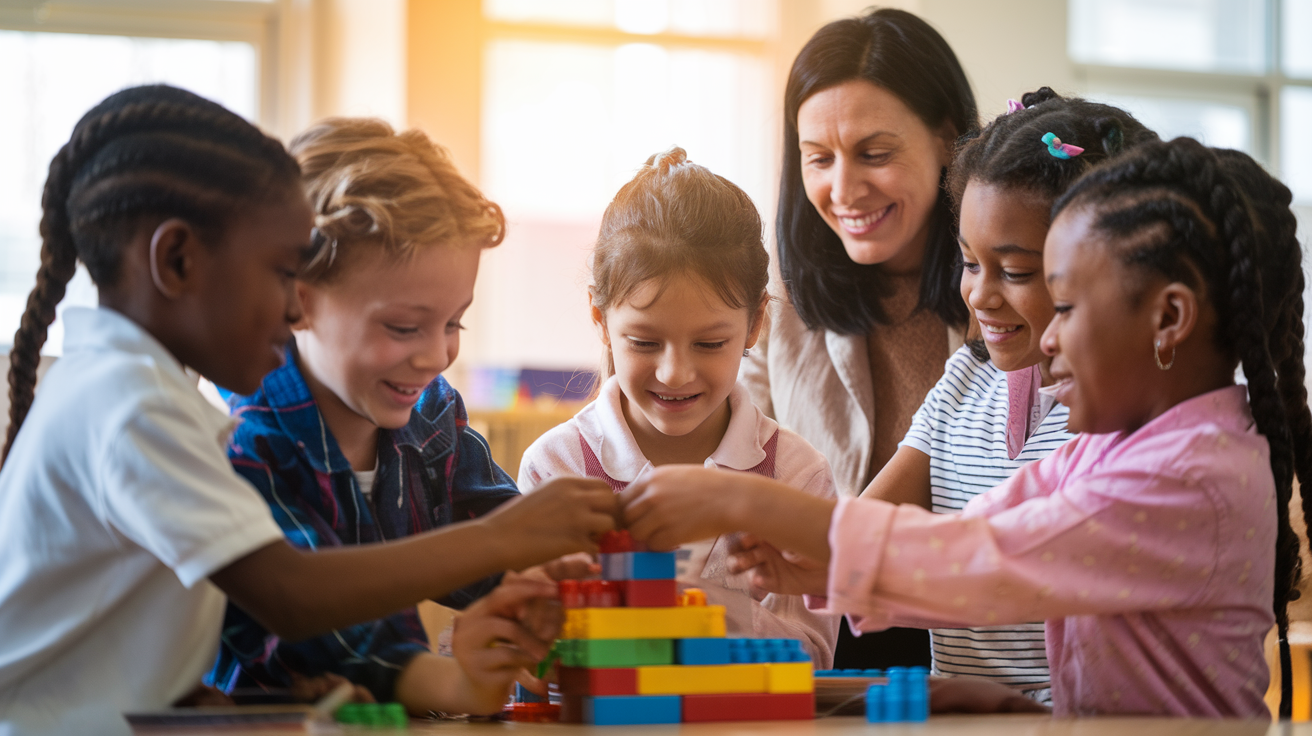
Organizing Mini “Show and Tell” Sessions
Kids naturally love sharing things that excite them! A regular “show and tell” creates the perfect low-pressure environment for your child to practice speaking in front of others. Start small—maybe just family members—then gradually include a few friends.
The magic happens when you set some simple guidelines:
- Each child gets 2 minutes to share
- Everyone asks at least one kind question afterward
- No interrupting during sharing time
My friend Sarah noticed her shy 7-year-old daughter transformed after just a month of weekly show-and-tell playdates. The girl went from hiding behind mom to confidently explaining her rock collection to classmates!
Collaborative Art Projects That Require Teamwork
Nothing builds confidence quite like creating something awesome together! Try these kid-tested ideas:
- Group mural where each child contributes a section
- “Pass the drawing” game where each child adds something before passing it along
- Team sculpture using recycled materials
The real confidence boost comes from the process, not the final product. When children see how their contribution fits into the bigger picture, they develop a sense of belonging and importance.
Simple Presentations on Favorite Topics
Kids become surprisingly articulate when talking about things they love! Start by having your child create a 1-minute presentation about their favorite:
- Animal
- Character
- Sport
- Food
- Place they’ve visited
The secret? Make it fun, not formal. Let them use props, drawings, or even dress up. Record these mini-presentations (with permission) so they can see their own growth over time.
Team Games That Celebrate Individual Strengths
Games that highlight each child’s unique abilities work wonders for confidence. Try these crowd-pleasers:
- Obstacle courses where different stations need different skills
- Scavenger hunts requiring various talents to complete
- “Superpower Spotlight” where each game showcases a different child’s strength
The key is structuring activities so every child gets to shine. When my nephew struggled with reading but excelled at building, his teacher created team challenges where his construction skills made him the MVP.
“Compliment Circle” for Positive Reinforcement
This deceptively simple activity packs a powerful confidence punch! Have children sit in a circle and take turns receiving compliments from everyone else.
Set these ground rules:
- Compliments must be specific (“I like how you helped me with the puzzle” rather than “You’re nice”)
- Everyone gives and receives equal attention
- No copying others’ compliments
Do this regularly and watch how your child begins to internalize these positive messages. The best part? They’ll naturally start noticing and complimenting others’ strengths too!
Technology-Free Social Interaction Games
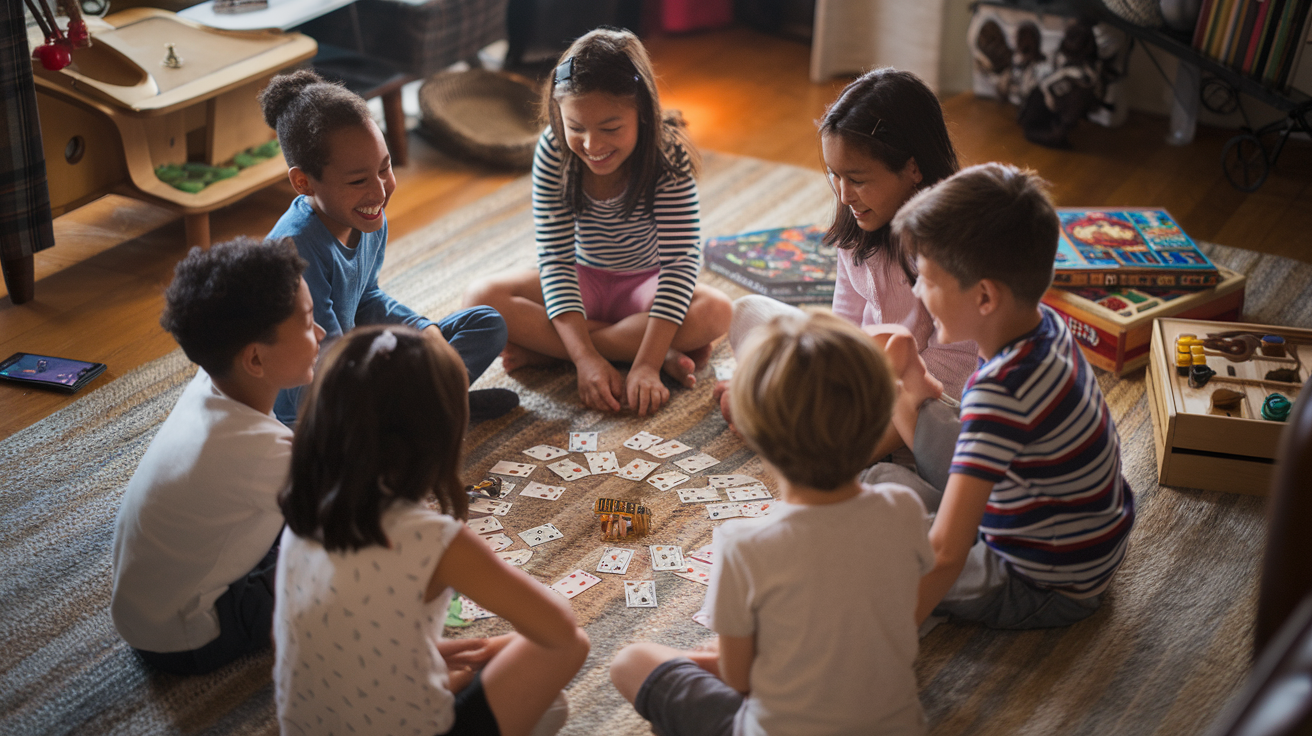
Board Games That Teach Turn-Taking
In today’s screen-dominated world, board games are making a serious comeback—and for good reason! They’re perfect little social skills factories disguised as fun. When kids play board games, they naturally practice waiting their turn, following rules, and handling both wins and losses.
Start with classics like Candy Land or Chutes and Ladders for younger children. These games don’t require reading but teach the critical skill of waiting for your turn. For kids ages 6-8, try Monopoly Junior or Sequence for Kids, which add strategy while maintaining that crucial turn-taking structure.
What makes board games so effective? They create a low-pressure environment where kids practice patience in real time. That momentary frustration when they have to wait becomes a valuable lesson in impulse control—something many kids struggle with in social settings.
Pro tip: Don’t always let your child win! Learning to lose gracefully is just as important as enjoying victory. Use these moments to model phrases like “Good game!” or “That was fun even though I didn’t win!”
Outdoor Activities That Encourage Cooperation
Nothing beats fresh air combined with teamwork! Outdoor cooperative games create natural opportunities for kids to work together while burning energy.
Try a classic parachute game where everyone holds the edges and must coordinate to keep a ball bouncing. Or set up a simple obstacle course that requires partners to help each other through. Red Light, Green Light teaches listening skills and self-control in a way that feels like play rather than practice.
Scavenger hunts with team-based challenges work wonders too. Split kids into small groups and give them tasks that require collaboration—like finding five different types of leaves or completing a physical challenge together.
The magic happens when children realize they can accomplish more together than alone. These activities create authentic moments for problem-solving conversation, negotiation, and celebrating shared success.
Card Games for Reading Social Cues
Card games offer unique opportunities for kids to develop their “people-reading” skills. Games like Go Fish require children to watch facial expressions to guess if another player has their desired card. UNO teaches flexibility and adapting to changing situations—crucial skills for navigating social interactions.
For older kids, try games like Apples to Apples Junior, where success depends on understanding what another player might find funny or interesting. This subtly teaches perspective-taking—a cornerstone of empathy development.
Even simple games of War provide chances to practice good sportsmanship and reading others’ reactions. Watch how your child responds when they win or lose a hand, and gently coach them through appropriate responses.
What makes card games special is their portability. Keep a deck in your bag for restaurants, waiting rooms, or family gatherings—instant practice for social skills in various environments!
Teaching Conflict Resolution Through Play
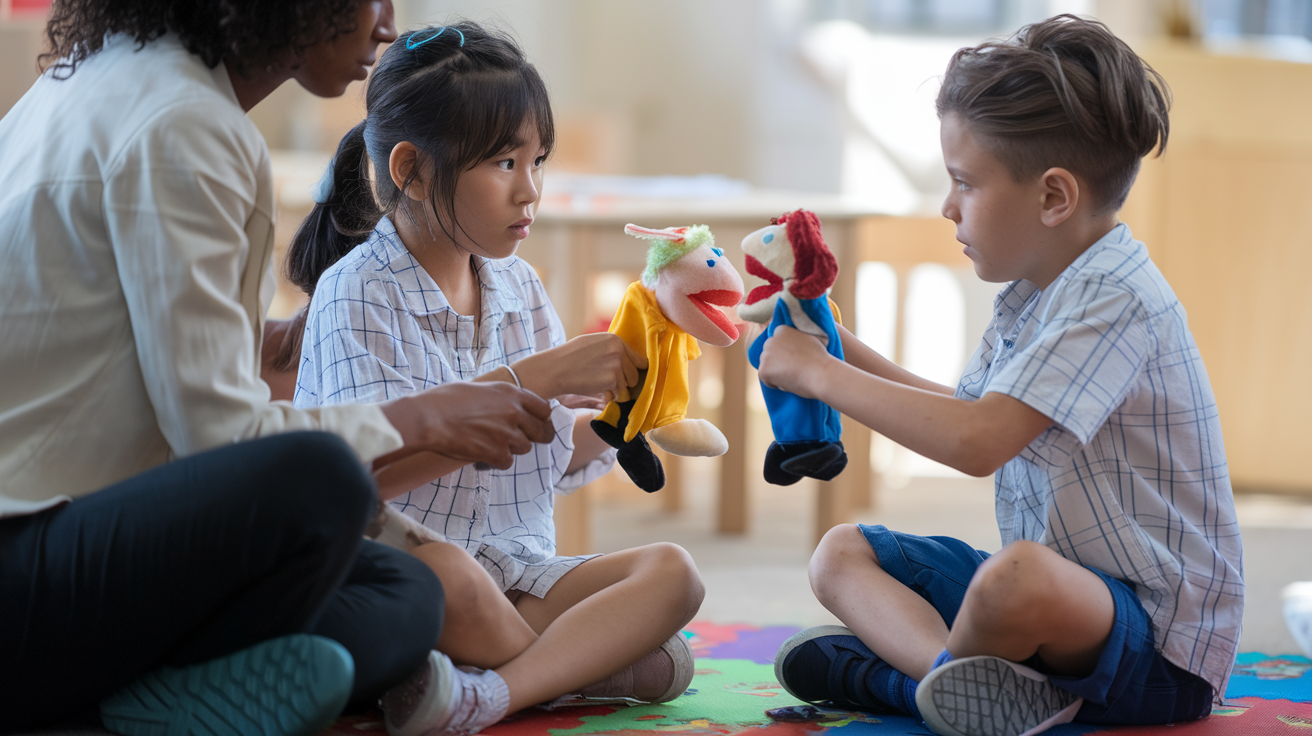
The “Problem-Solving Superhero” Approach
Kids love superheroes, so why not use that fascination to teach conflict resolution? The Problem-Solving Superhero approach taps into your child’s imagination while building crucial social skills.
Create superhero personas with your child that have special conflict-solving powers. Maybe “Listening Lucy” has super-powered ears that help her understand both sides of an argument. Or “Compromise Carl” can magically find solutions where everyone wins.
When conflicts arise, encourage your child to channel their inner superhero:
- “What would Patience Pete do right now?”
- “Time to put on your Calm Mind Cape!”
This playful approach takes the sting out of disagreements and gives kids a mental framework they can actually use when emotions run high.
Peaceful Resolution Role-Play Scenarios
Role-playing is crazy effective for practicing social skills before kids need them in real life. Set up common conflict scenarios like:
- Two friends wanting the same toy
- Someone cutting in line
- A teammate not following game rules
- Being excluded from a group activity
Take turns playing different roles so your child experiences both sides of the conflict. After each scenario, ask questions like:
- “How did that feel when you were the person left out?”
- “What words worked best to solve the problem?”
- “Could you tell how the other person was feeling?”
The magic happens when kids start transferring these practiced solutions to real-life situations.
Creating Win-Win Solutions Through Negotiation Games
Negotiation isn’t just for boardrooms—it’s a skill your kid needs on the playground too!
Try this simple game: Give two kids one cookie to share. They must figure out how to divide it fairly, but here’s the twist—they both need to be happy with the solution or nobody gets any. You’ll be amazed at the creative solutions they come up with!
Other fun negotiation activities include:
- Trading card swaps with time limits
- “Desert island” resource allocation games
- “Build a city” with limited blocks where kids must plan together
These games teach kids that compromise isn’t about losing—it’s about finding creative solutions where everyone feels good about the outcome.
Using Puppets to Work Through Disagreements
Puppets are magical tools for conflict resolution, especially with younger children or those who struggle expressing emotions directly.
When using puppets:
- Let the puppets have the conflict, not the children
- Use different voices to show different perspectives
- Have the puppets “think out loud” about their feelings
- Model appropriate language through the puppets
Kids often find it easier to express difficult feelings through a puppet than directly. They’ll say things like, “My puppet is really mad because…” when they might not be able to express that emotion themselves.
Create a special “problem-solving puppet” that only comes out during conflicts. This puppet can ask questions, suggest solutions, and validate feelings—teaching your child these skills along the way.
Enhancing Empathy and Understanding Others
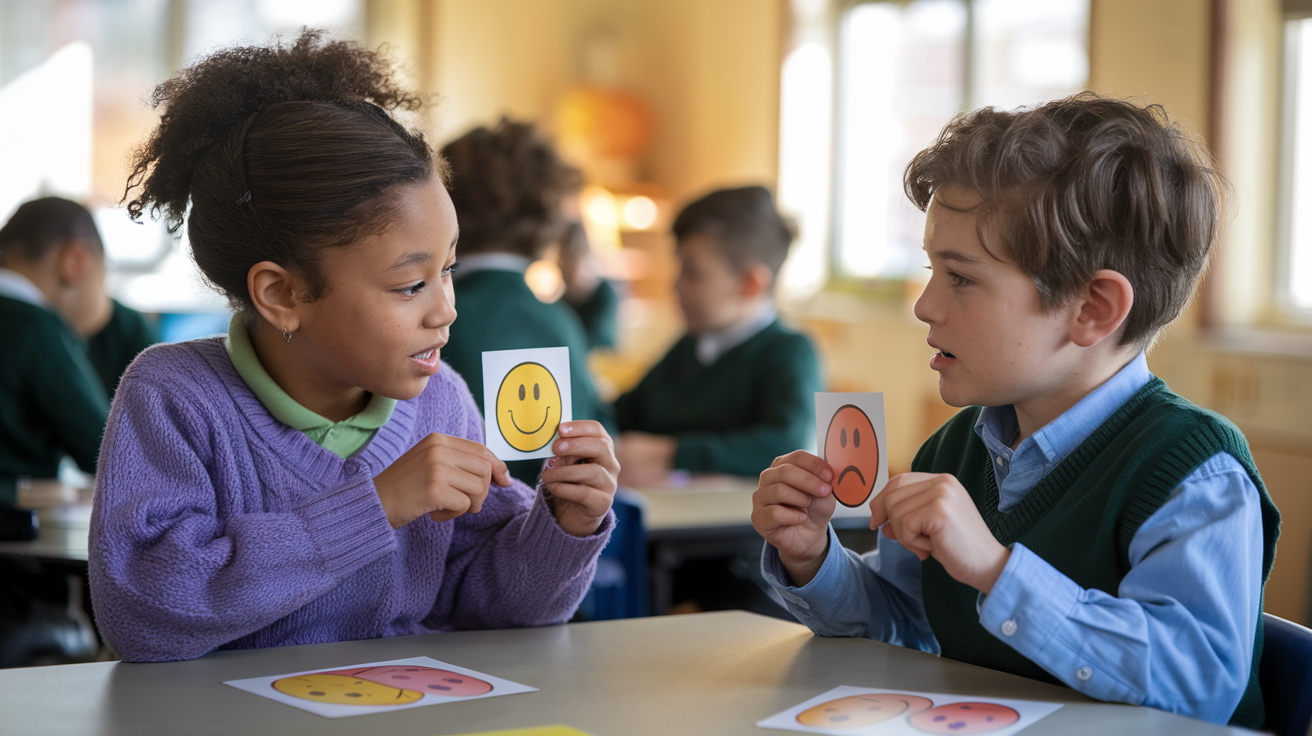
Empathy isn’t just a nice-to-have skill for kids—it’s absolutely essential for their social development. When children understand how others feel, they build stronger relationships and navigate social situations with ease. Here are some powerful activities to help your child develop empathy and understand different perspectives.
A. Perspective-Taking Stories and Discussions
Kids love stories, and they’re perfect for building empathy. Try reading books where characters face challenges, then pause to ask questions like:
“How do you think she’s feeling right now?”
“What would you do if you were in his situation?”
“Why do you think he made that choice?”
You can also create “what if” scenarios during dinner conversations. “What if someone new joined your class and didn’t know anyone?” These simple discussions help children practice seeing the world through different eyes.
B. Random Acts of Kindness Challenge
Turn kindness into an exciting adventure! Create a “kindness calendar” with your child and challenge them to complete one thoughtful act each day. Ideas might include:
- Writing a thank-you note to their teacher
- Helping a younger sibling with homework
- Leaving a positive note for a family member
- Sharing toys with friends without being asked
The magic happens when you discuss how their actions made others feel. “Did you notice how grandma smiled when you called her? How did that make you feel?”
C. Community Helper Appreciation Activities
Children gain deeper understanding when they connect with people who have different roles in society. Try these activities:
- Have your child interview a local firefighter, nurse, or teacher about their job
- Create thank-you cards for mail carriers or sanitation workers
- Organize a “career day” playdate where kids dress as different community helpers
- Visit nursing homes where children can interact with elderly residents
These experiences show children that everyone’s contribution matters, regardless of their role.
D. Diverse Book Club for Cultural Awareness
Start a mini book club featuring stories from different cultures and backgrounds. After reading, encourage conversations about:
- Similarities between your family and the families in the books
- Interesting traditions from around the world
- How people solve problems differently across cultures
- Words and phrases from other languages
Extend the learning by cooking foods from the stories or celebrating holidays from different cultures. These activities help children recognize both our beautiful differences and our shared humanity.
Tracking Progress and Celebrating Growth
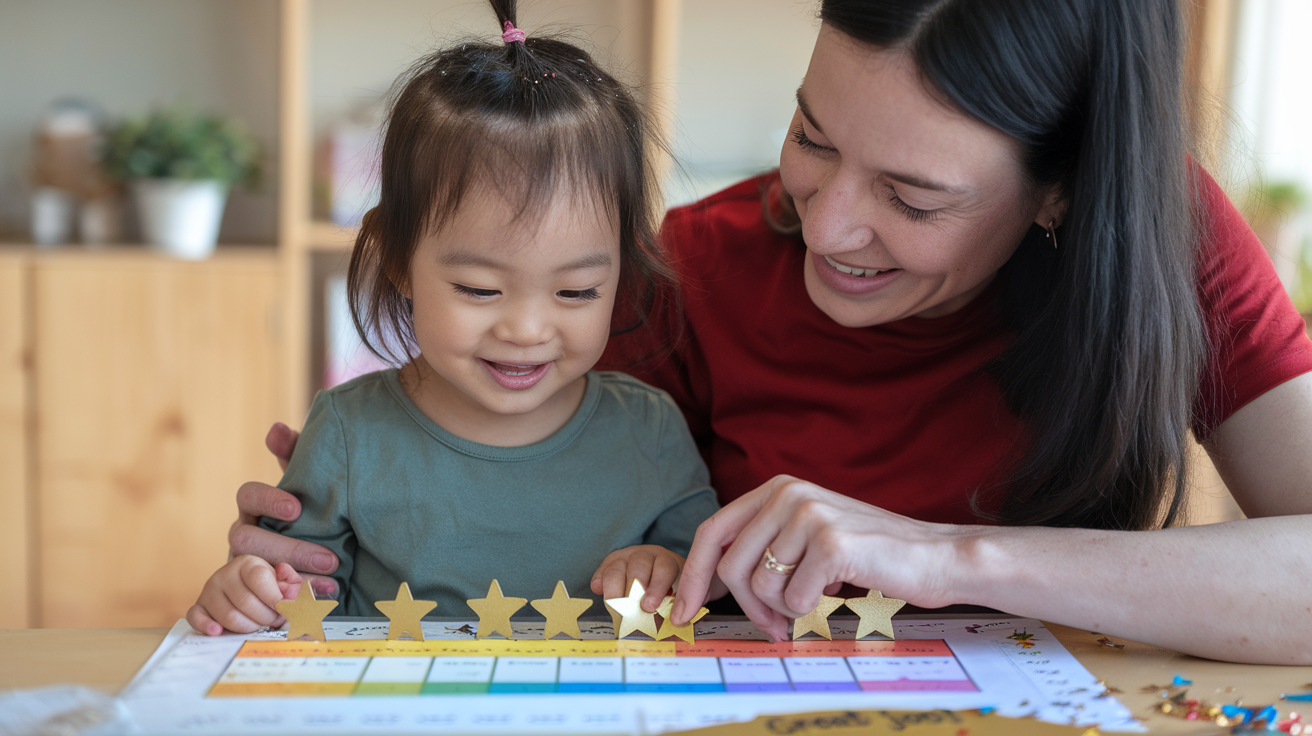
Creating a Social Skills Achievement Chart
Want to really see how far your child has come? Try making a social skills chart together. Grab a poster board, some markers, and stickers. List the skills you’re working on – things like “saying hello to new friends,” “taking turns in games,” or “asking questions when talking.”
Set it up with days of the week across the top. Every time your child practices a skill, they get to add a sticker or color in a box. Kids love this visual proof of their progress!
Keep the chart somewhere visible – the fridge works great. This isn’t about perfection, it’s about progress. Some days will have lots of stickers, others might have fewer. That’s totally normal and part of the learning process.
Weekly Family Check-ins to Discuss Experiences
Friday night “social skill chats” can become a family tradition your kids actually look forward to. The secret? Make it fun, not formal.
Maybe it happens over pizza or ice cream. Ask open questions like “What was one time you felt really good talking to someone this week?” or “Was there a moment when you weren’t sure what to say to someone?”
Listen more than you talk. Your child might surprise you with insights about their own social growth. Share your own social experiences too – kids love hearing that adults sometimes struggle with the same things they do.
Confidence Journal for Self-Reflection
A simple notebook can become your child’s confidence boosting tool. For younger kids, this might be a drawing journal where they sketch social situations that made them feel good. Older children can write short entries.
Some prompts to try:
- “One new thing I tried today was…”
- “I felt proud when I…”
- “Something that was hard but I did anyway was…”
- “Next time I want to try…”
Decorating their journal makes it special and personal. Let them customize it with stickers, drawings, or photos that make them feel good.
Celebrating Small Wins to Reinforce Learning
The tiny victories deserve just as much celebration as the big ones. Did your normally shy child ask a question in class? That’s worth acknowledging!
Celebrations don’t need to be elaborate. A high-five, a special dessert, or getting to pick the family movie can all feel special. The point is connecting the positive feeling to the social skill they practiced.
Talk specifically about what they did well: “I noticed you looked right at Mrs. Johnson when you asked your question. That shows real confidence!”
When kids stumble (and they will), treat it as information, not failure. “That didn’t go how you hoped, but now we know something to practice more.”
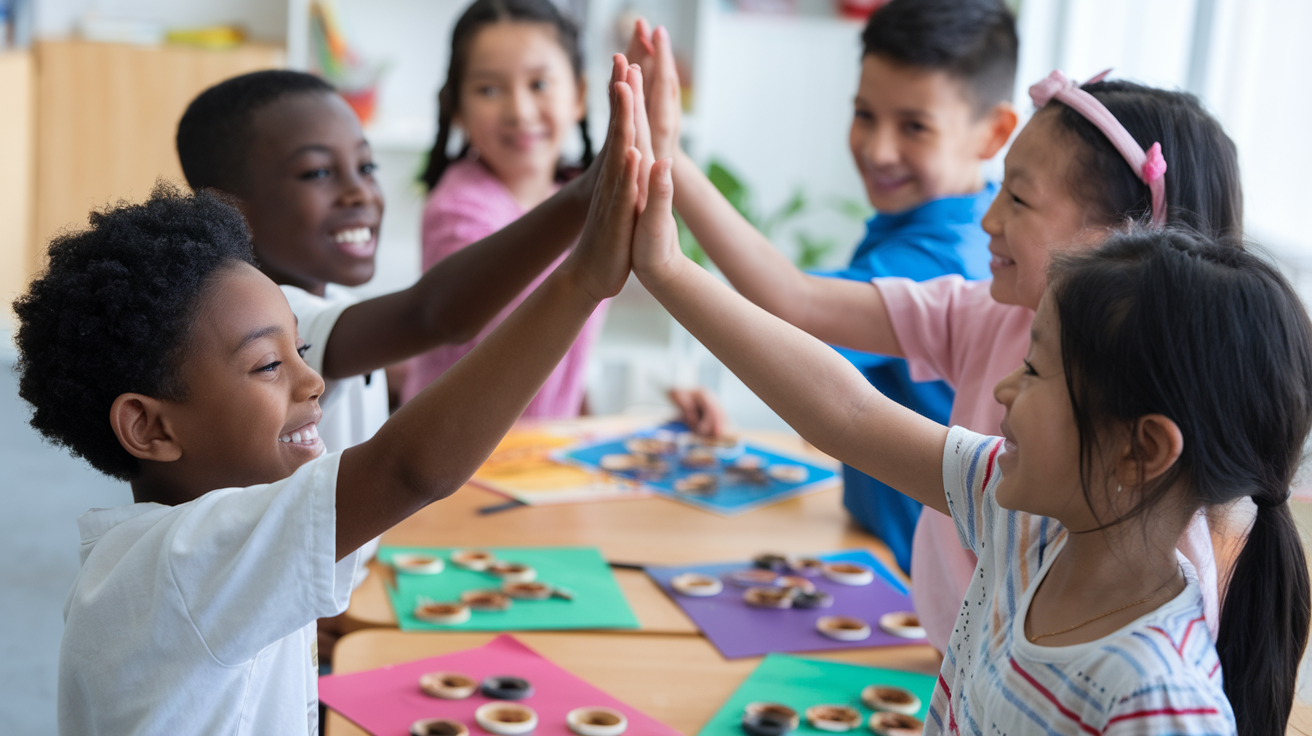
Building Social Skills, Building Futures
Helping your child develop strong social skills isn’t just about making friends—it’s about equipping them with essential life tools that will serve them well into adulthood. Through role-playing games, active listening exercises, group activities, and technology-free interactions, you can create a supportive environment where your child learns to communicate effectively, resolve conflicts, and understand others’ perspectives. These eight simple activities provide a practical framework for nurturing your child’s social confidence at their own pace.
Remember that social skill development is a journey, not a destination. Celebrate small victories along the way and remain patient as your child grows. By tracking progress and acknowledging improvements, you reinforce positive behaviors and boost self-esteem. Whether your child is naturally outgoing or more reserved, these activities can be adapted to their unique personality and needs. Start implementing these exercises today, and watch as your child blossoms into a socially confident individual ready to navigate life’s relationships with ease.
















